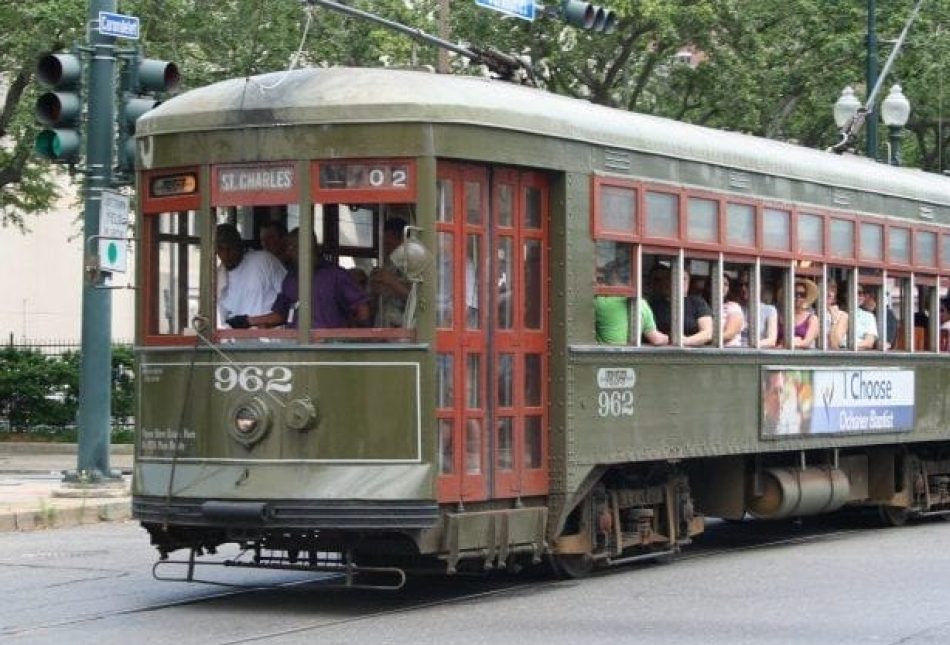Voters Won’t Board Streetcar II

Back in 2006, the Rio Grande Foundation was one of the leading opponents of the original streetcar. Since then, the issue has been “below the radar screen,” still on the agenda of many policymakers, but lacking the momentum to move forward due to public opposition. So, it was with great interest that I read J.W. Madison’s article on these pages in which he laid out the case for a scaled-back “Streetcar II.”
Rather than laying out a clear and compelling case for the streetcar, the author makes a series of points without citing where the data come from or how the supposedly positive traits associated with rail transit will manifest themselves here in Albuquerque. His initial point about the relative efficiency of buses and train travel is indicative of this problem. He states that trains are three times as efficient as buses, but fails to back this assertion up with any citation or data.
With a few Internet searches, I found this from transportation analyst Randal O’Toole, “U.S. data show that buses consume about the same energy, per passenger mile, as SUVs. Buses and SUVs use about a quarter more energy than cars, which are about the same as light rail.” So, the streetcar would be about as energy efficient as an automobile per passenger mile. That last phrase is the key because a fully-loaded train is indeed very efficient, but trains are almost never full outside of peak hours. Worse, when transportation analysts say “full,” it means that you are cheek to jowl with your fellow passenger and standing, not just that every seat is occupied.
Without going through each of Madison’s points, each of which could be attacked individually with greater space, his concluding point that rail transit returns $4 to $8 for every dollar spent seems dubious at best. There is no mention of how this number is derived or justified, simply an assertion. According to the U.S. Department of Transportation, for every thousand passenger miles, transit receives $118 in subsidy while highways actually subsidize other modes to the tune of negative $2. In other words, highway users pay more than they get back through gas taxes, vehicle registrations, etc. If transit returns $4 to $8 for every dollar spent, it would seem that $1 spent on a highway returns an exponentially greater amount.
The fact is that Albuquerque’s bus system, which is based on “express” Rapid Ride buses operating on a few major arteries and “local” buses in other areas of town, serves the community quite well and at a cost that is several times lower than the proposed streetcar ever could, even in a limited area. An expensive new streetcar could jeopardize this system, not complement it.
Los Angeles found this out the hard way in the late 1990s. That is when the city was sued by the NAACP and a coalition of bus riders, angry that expensive light rail projects were eating up scarce resources and causing the city to cut back on bus routes. The same thing could easily occur in Albuquerque as resources would have to be shifted and taxes would be raised in order to fund the construction and operation of a rail project benefitting one small area of town.
Ultimately (and unfortunately), for many people, rail is no longer just a method of moving people from one place to the other. Instead, advocates assert it will solve our environmental problems by being green, renew our city centers, make us thinner by encouraging us to walk more, and improve our moods by eliminating traffic. Given these outsized expectations, it is no wonder that such projects don’t live up to expectations.
Trains are indeed useful. For example, they move thousands of tons of freight every day in this country. But all modes of transportation should be judged based on an open and realistic cost-benefit analysis, not unrealistic expectations. Most citizens knew that the streetcar was not a good idea back in 2006. I believe voters are smart enough not to fall for the unrealistic promises made by a few train buffs.
Paul Gessing is president of New Mexico’s Rio Grande Foundation, a non-partisan, tax-exempt research and educational organization dedicated to principles of limited government, economic freedom and individual responsibility.

